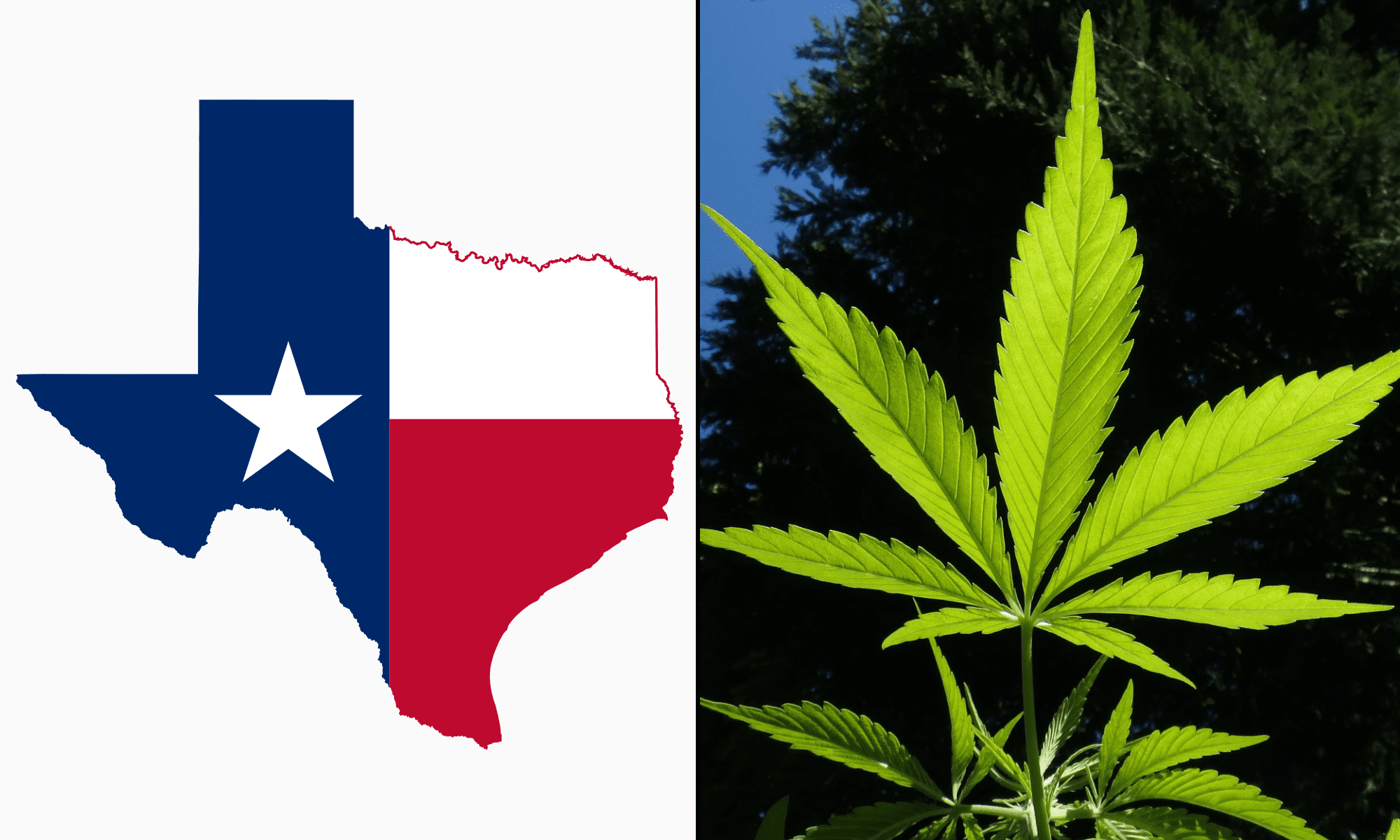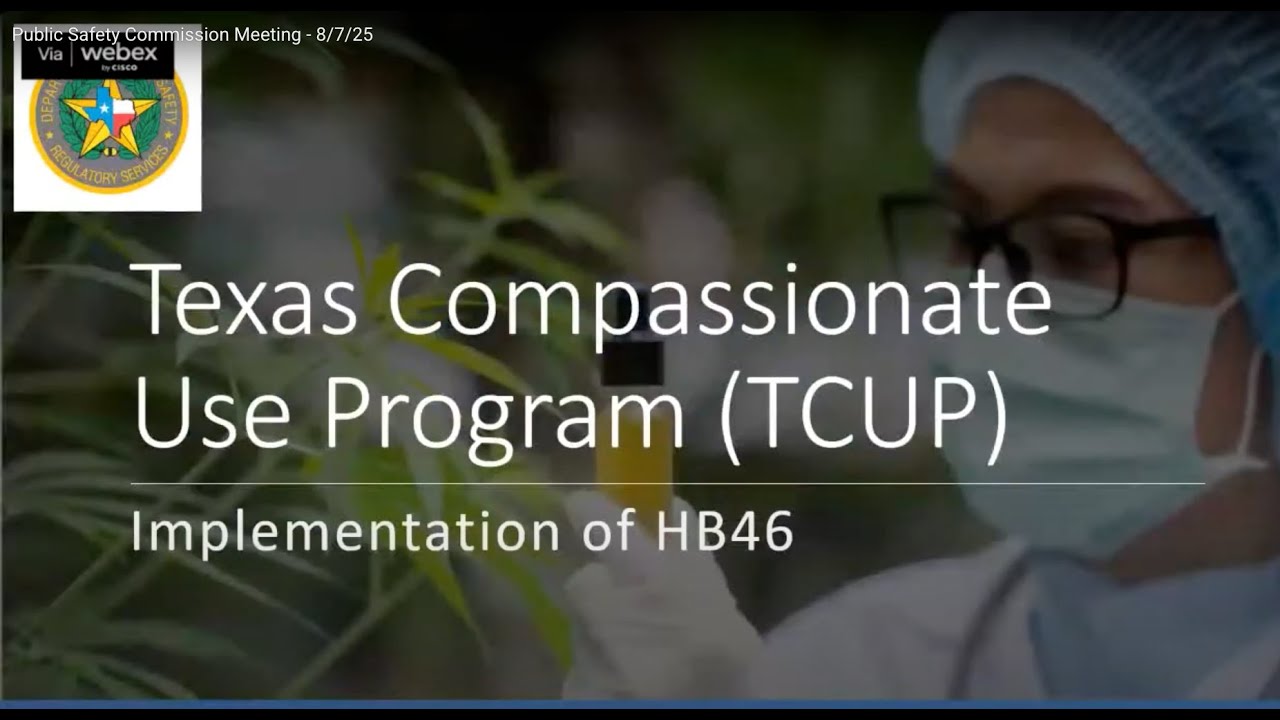Politics
Texas Officials Take Key Step To Expand Medical Marijuana Program As Hemp Ban Bill Stalls

Texas officials have taken an initial step toward implementing a law to expand the state’s medical marijuana program, with the Department of Public Safety (DPS) previewing proposed rules to significantly increase the number of licensed dispensaries.
As a controversial Senate-passed bill to ban hemp THC products remains stalled in the House due to a lack of quorum during an ongoing special legislative session, DPS’s regulatory chief Wayne Mueller discussed forthcoming draft rules for the medical cannabis law at a meeting before the Public Safety Commission on Thursday.
One the proposed rules are formally published in the Texas Register, which advocates expect to happen within the next week, they will still need to go through a public comment period. They must be finalized by October 1.
“We’ve received a lot of questions about this. We’ve gotten a lot of opinions about this,” Mueller said at the commission meeting. “And to be perfectly frank, we’ve had at least some that I would describe as attempts at undue influence on which direction we need to go with this.”
To comply with the medical marijuana expansion legislation that Gov. Greg Abbott (R) signed into law in June, DPS will be formally proposing a future licensing application process, security standards for satellite locations and license revocation parameters.
In addition to increasing the number of dispensaries in the state, the law also expands the state’s list of medical cannabis qualifying conditions to include chronic pain, traumatic brain injury (TBI), Crohn’s disease and other inflammatory bowel diseases, while also allowing end-of-life patients in palliative or hospice care to use marijuana. That policy change is automatically adopted via the enacted statute, so it will not require further rulemaking.
DPS will ultimately be issuing 12 new licenses for dispensaries across the state. Currently there are only three. The additional licensees will go through a competitive process, with officials prioritizing Texas’s public health regions to optimize access.
The first round of licenses will be awarded to nine of 139 applicants who submitted their forms during an earlier application window in 2023. DPS will select those nine licensees on December 1. The 2023 applicants that didn’t receive a license, as well as any new prospective licensees, will have another shot at getting their license during a second round where awardees will be announced on April 1, 2026.
The 2023 group can still revise their applications up until September 15. New would-be dispensary owners have until that date to submit their applications as well.
“This broad expansion of the Compassionate Use Program is a long time coming,” Heather Fazio, director of the advocacy group Texas Cannabis Policy Center, told Marijuana Moment on Friday. “Finally, Texas patients will have more options and new businesses will have the opportunity to operate.”
“There are still quite a few shortcomings in the program, including patient protections for employment, child custody, and gun rights, but we are grateful to see an improved and expanding program,” she said. “Unlike during previous application periods, new applicants will have the benefit of knowing the rating criteria in advance. This is a big step toward transparency, which we’ve supported for years.”
“While we work to preserve legal hemp-derived THC for responsible adult use, it’s important that we continue our efforts to provide patients with safe and effective medical cannabis through the Compassionate Use Program,” Fazio said.
(Disclosure: Fazio supports Marijuana Moment’s work via monthly Patreon pledges.)
Meanwhile, more rulemaking is expected in the coming weeks, as the Department of State Health Services (DSHS) is separately required to develop rules related to allowable vaping devices, which also must be finalized by October 1.
DSHS is further tasked with creating a pathway for doctors to make recommendations to the department about adding additional qualifying conditions for medical cannabis. If DSHS determines that another condition warrants inclusion in that list, it is empowered to forward those recommendations to the legislature for consideration in the next legislative session.
Meanwhile, House lawmakers are in a standstill after multiple Democratic members left the state to deny the chamber a quorum that’s necessary to pass legislation—specifically a proposed redistricting of the state’s congressional map that would generally favor Republicans.
That also means that the hemp ban bill that passed the Senate is on hold, with just weeks left before the current special session is set to end.
The governor vetoed an earlier version of the controversial proposal, and he recently outlined what he’d like to see in a revised version of the bill.
The special session started on July 21. Under the state constitution, special sessions cannot last longer than 30 days, meaning a quorum would need to be reestablished before August 20 if any bills are to move. Of course, nothing prevents the governor from calling another special session once that deadline passes.
At a press conference last month, a group of Democratic state senators introduced two new cannabis-related bills, including one that would regulate the hemp market, allowing adults 21 and older to purchase hemp products containing no more than 5 mg of THC per serving.
A second new bill would effectively legalize cannabis for adult use by removing criminal penalties for possession of up to two ounces of marijuana on a person and up to 10 ounces in a single household if it’s secure and out of sight. Cultivation of up to six plants, only half of which could be mature, would also be legalized.
Some advocates are hopeful that either SB 5 or its House counterpart could see revisions as they make their way through the legislative process—either to affirmatively regulate the hemp market or to at least ease some of the criminal penalties on individuals found in possession of the affected products.
For what it’s worth, a new poll shows likely voters in the state across the political spectrum aren’t on board with the outright ban—with an overwhelming majority saying they support regulation over prohibition of cannabinoids.
—
Marijuana Moment is tracking hundreds of cannabis, psychedelics and drug policy bills in state legislatures and Congress this year. Patreon supporters pledging at least $25/month get access to our interactive maps, charts and hearing calendar so they don’t miss any developments.
![]()
Learn more about our marijuana bill tracker and become a supporter on Patreon to get access.
—
Separately, Rep. Nicole Collier (D) introduced a one-page bill, HB 42, designed to protect consumers in the state from criminal charges if what they believed was a legal hemp product turned out to contain excessive amounts of THC, making it illegal marijuana. It would prevent the criminalization of someone found in possession of a product that’s labeled as hemp but is determined to contain “a controlled substance or marihuana.”
In order for the person to obtain the legal protection, the product would need to have been purchased “from a retailer the person reasonably believed was authorized to sell a consumable hemp product.”
Another bill—HB 195, introduced by Rep. Jessica González (D)—would legalize marijuana for people 21 and older, allowing possession of up to 2.5 ounces of cannabis, with no more than 15 grams of that amount being in concentrated form.
Yet another proposal would order state officials to conduct a study on testing for THC intoxication.
As for what Texans themselves want to see from their representatives, proponents of reining in the largely unregulated intoxicating hemp industry in Texas shared new polling data indicating that majorities of respondents from both major political parties support outlawing synthetic cannabinoids, such as delta-8 THC.
The survey also found that respondents would rather obtain therapeutic cannabis products through a state-licensed medical marijuana program than from a “smoke shop selling unregulated and untested hemp.”
Ahead of the governor’s veto in June of SB 3—the earlier hemp product ban—advocates and stakeholders had delivered more than 100,000 petition signatures asking Abbott to reject the measure. Critics argued that the industry—which employs an estimated 53,000 people—would be decimated if the measure became law.
Image element courtesy of AnonMoos.




